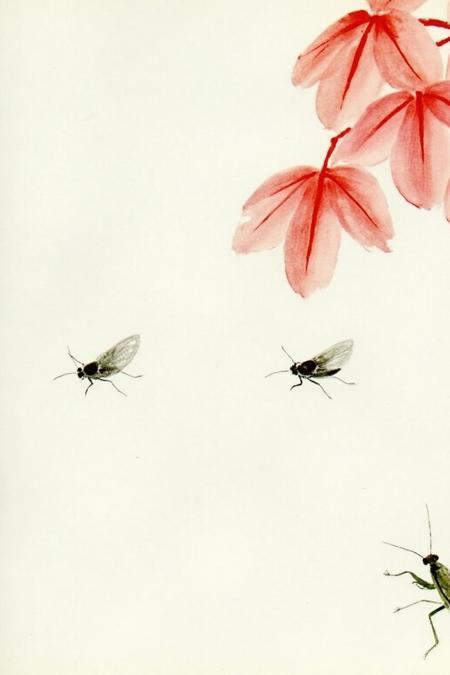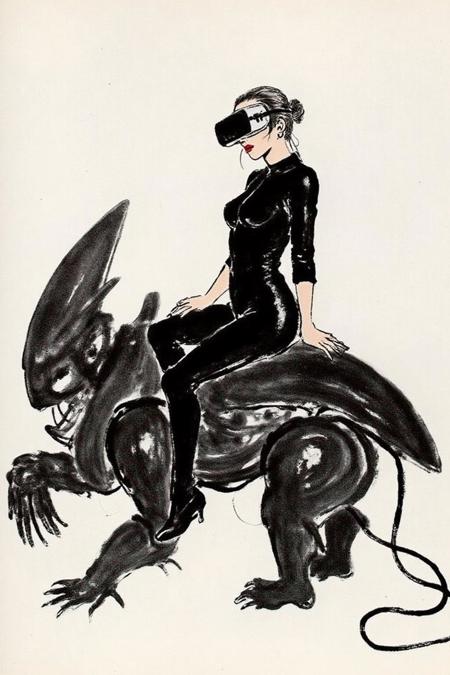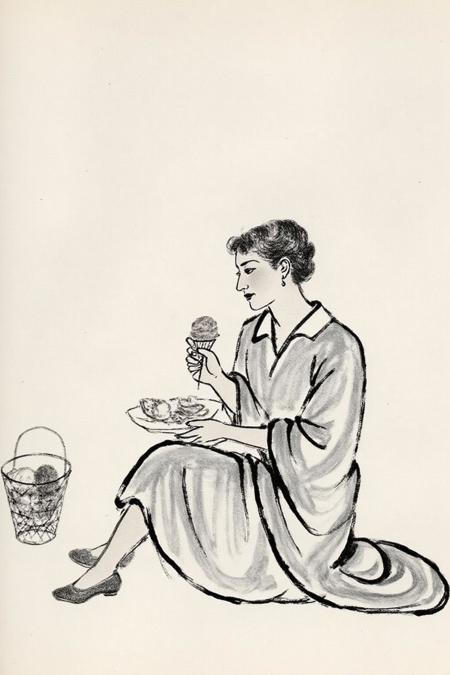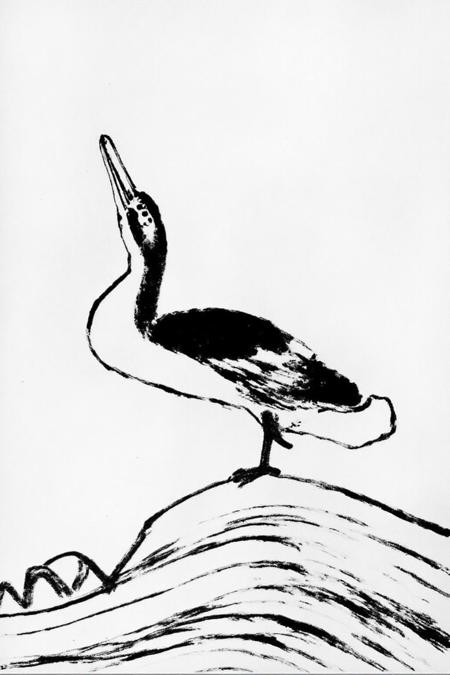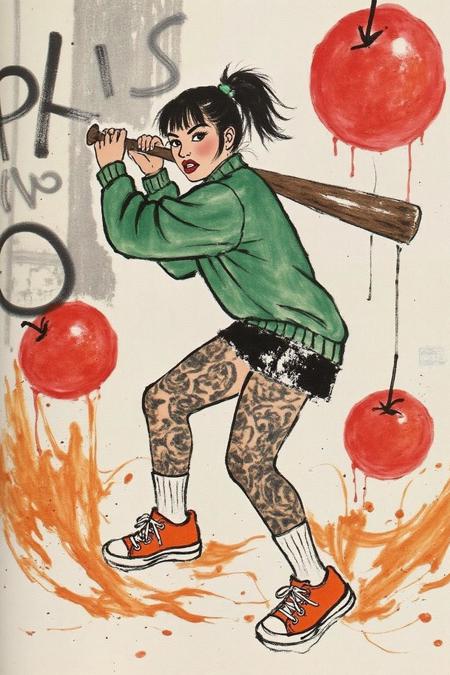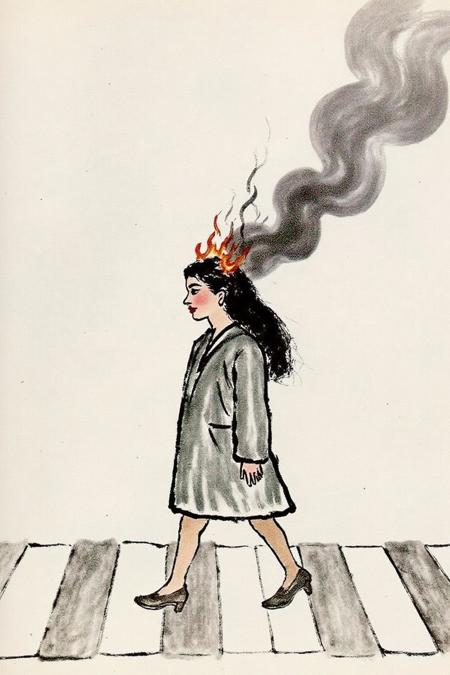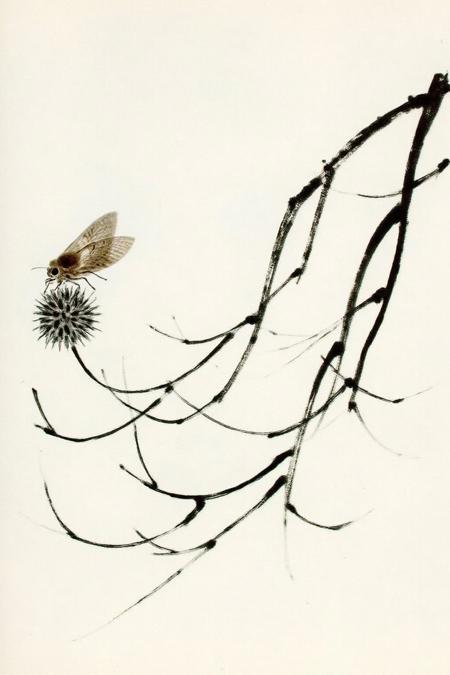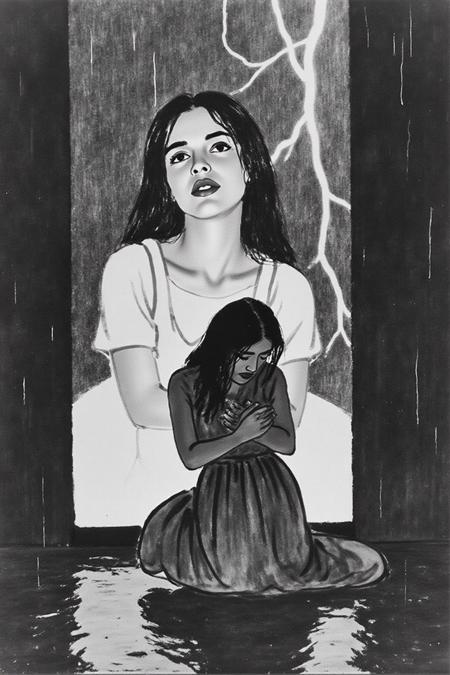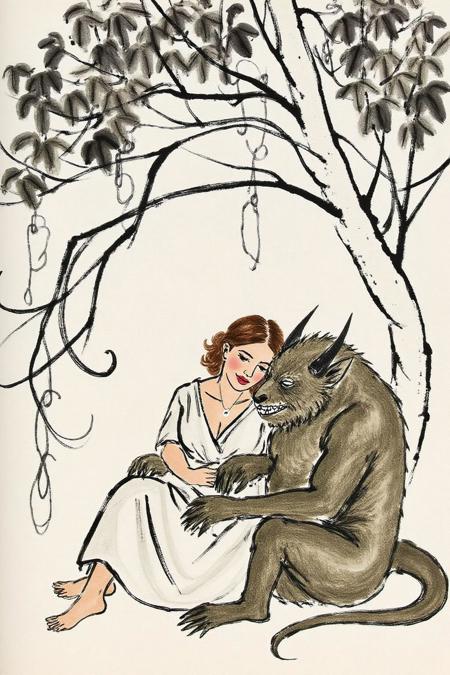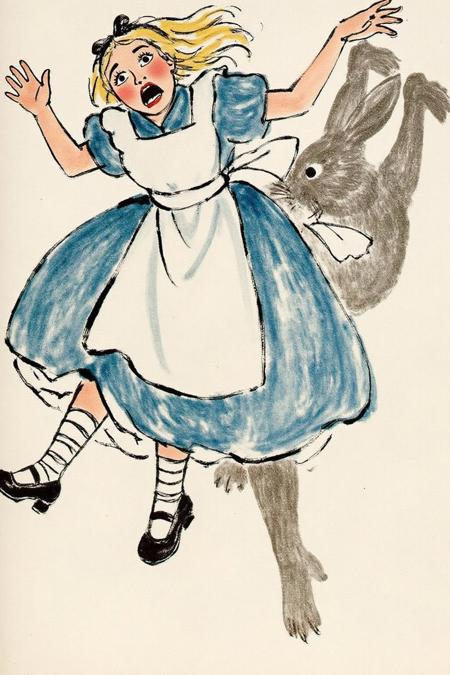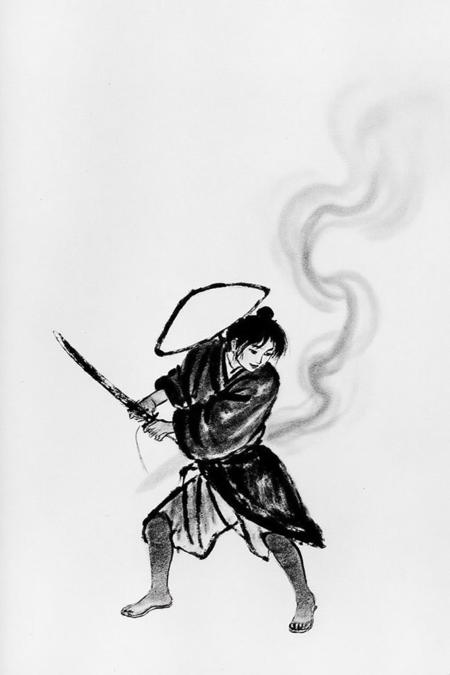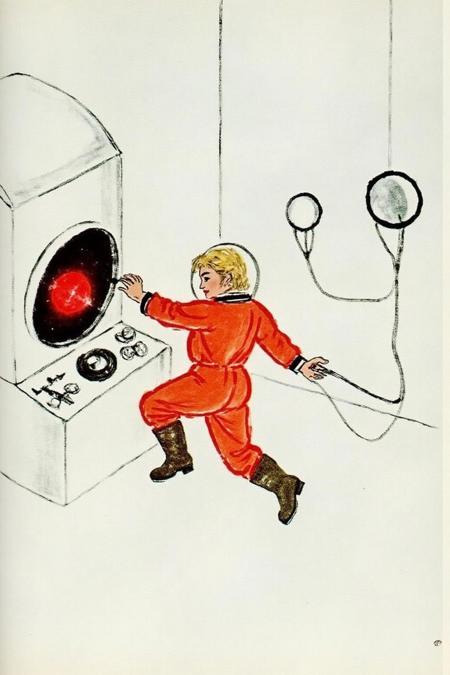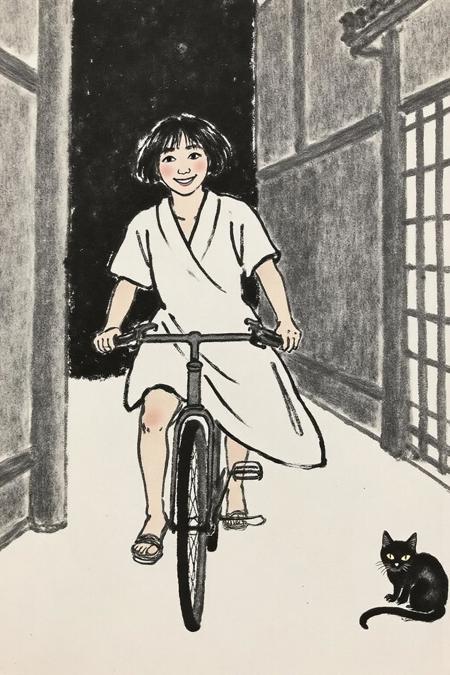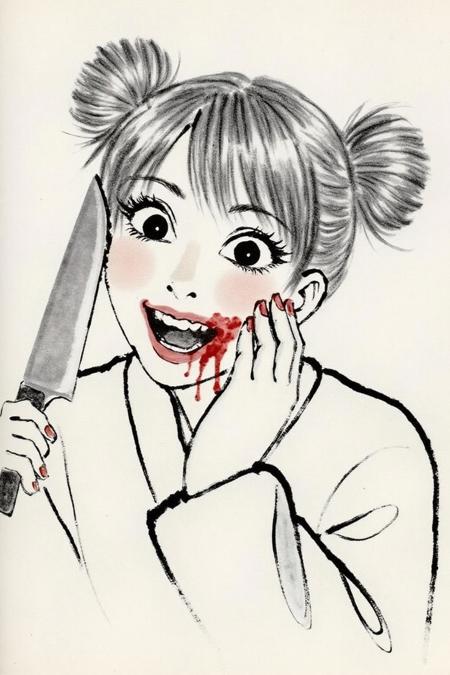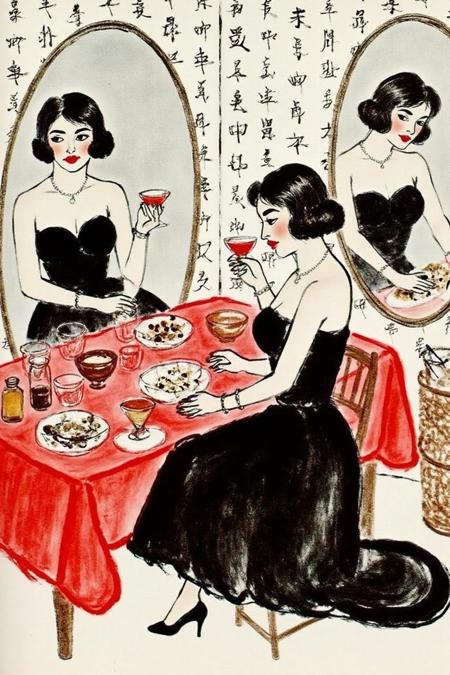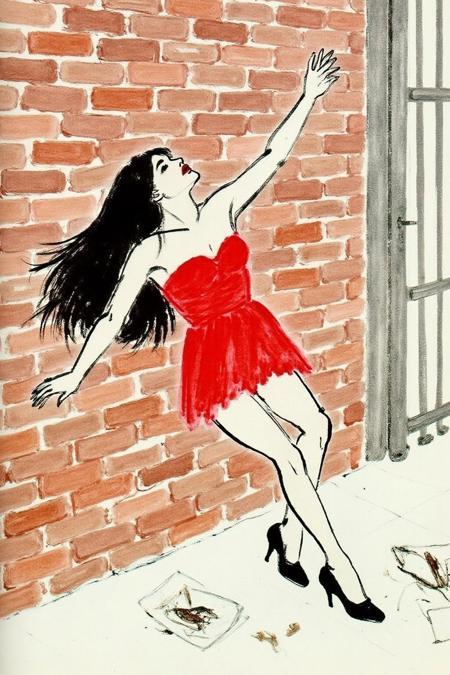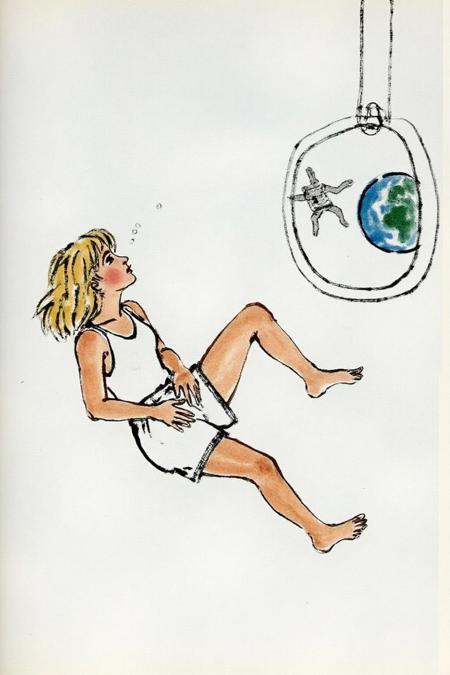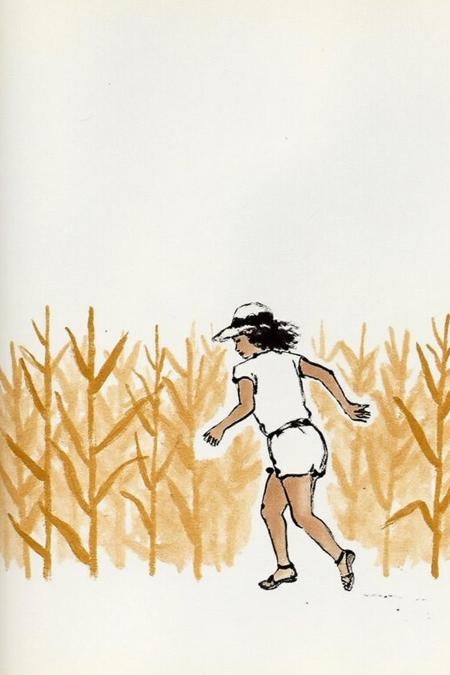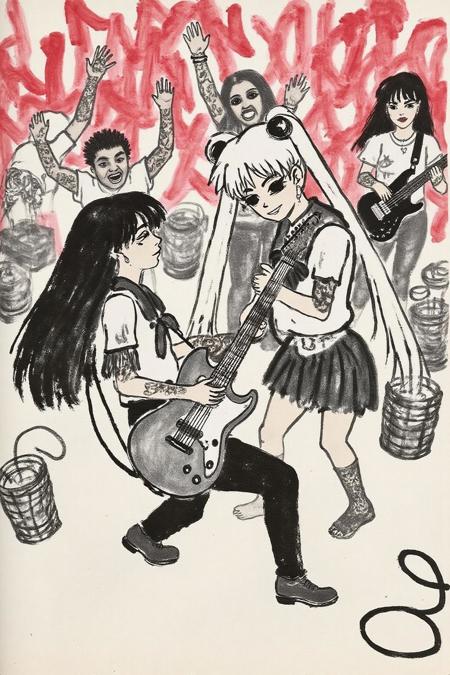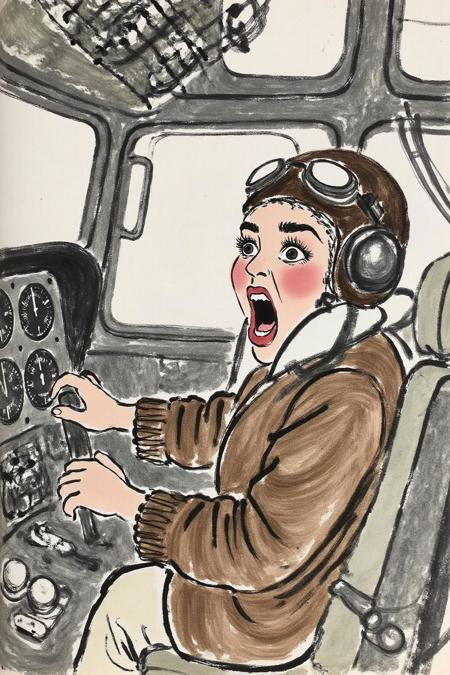
Trained on nineteen Chinese style ink wash painting by Qi Baishi /齊白石 (白石 means "white stone"). To see his works, please go to https://www.wikiart.org/en/qi-baishi
Due to the minimalist/abstract nature of his paintings, this LoRA can produce some very interesting ink brush images. Keeping the prompt relative simple to let the LoRA be more creative. Use weight of 1. You can add/remove "minimalist" from the prompt to get a different result.
For fans of the great master, my apologies for being disrespectful ? (對大師不敬,請原諒)
Qi Baishi (齊白石, 1864–1957)
Qi Baishi /齊白石 was one of the most celebrated Chinese painters of the 20th century. Known for his mastery of traditional Chinese ink painting and calligraphy, Qi Baishi’s works are renowned for their vibrant and lively depictions of nature, everyday life, and the spirit of simplicity. He combined traditional techniques with innovative, modern interpretations, making his art accessible and widely admired.
Early Life
-
Birth: Qi Baishi was born on January 1, 1864, in Xiangtan, Hunan Province, China.
-
Family Background: He came from a poor farming family and started working as a carpenter at a young age. His humble origins influenced his later works, which often celebrated ordinary, everyday subjects.
-
Introduction to Art: Qi taught himself painting and calligraphy by studying traditional Chinese painting manuals. He was inspired by works of earlier Chinese masters, such as Xu Wei and Bada Shanren.
Artistic Development
Qi Baishi’s artistic style evolved over time, as he absorbed influences from both traditional Chinese art and the people and environment around him.
Subjects of His Paintings
-
Nature: Qi Baishi is best known for his depictions of simple yet evocative subjects from nature, such as:
-
Shrimp
-
Crabs
-
Fish
-
Frogs
-
Flowers and fruits
-
Insects, like bees and cicadas
-
-
Human Life: He also painted scenes of rural life, farmers, and village landscapes, reflecting his roots and everyday observations.
-
Whimsical Themes: Qi Baishi often infused his work with humor and lightheartedness, portraying animals and objects in playful and imaginative ways.
Techniques
-
Xieyi Style (写意): Qi Baishi worked primarily in the freehand or expressive style of Chinese painting, emphasizing the essence of the subject rather than detailed realism.
-
Dynamic Brushwork: His bold, flowing brushstrokes gave his paintings vitality and movement, particularly in his iconic depictions of shrimp.
-
Color Use: He employed vibrant yet restrained colors, blending traditional Chinese ink techniques with splashes of bright red, green, and yellow.
-
Calligraphy: Qi Baishi’s calligraphy, often included alongside his paintings, was an integral part of his art and reflected his mastery of traditional Chinese scripts.
Notable Themes and Works
-
Shrimp Paintings: His paintings of shrimp are perhaps his most famous works. Using minimal, fluid strokes, Qi Baishi captured the transparency, liveliness, and movement of shrimp in water.
-
"Ink Play with Grass and Insects": This series showcases his talent for blending humor, charm, and precision, depicting small creatures in whimsical and lifelike ways.
-
"Pine Trees, Cranes, and Lingzhi Mushrooms": A painting with symbolic elements of longevity and good fortune, typical of traditional Chinese art.
Philosophy and Style
Qi Baishi believed in simplicity and sincerity in art. He once said, "Paintings should be something between likeness and unlikeness, because complete likeness is lifeless."
-
"Greatness in the Small": His art often celebrated the beauty of small, overlooked subjects, such as insects, vegetables, and simple rural scenes.
-
Innovative Yet Traditional: While deeply rooted in Chinese artistic traditions, Qi Baishi added a modern sensibility that appealed to a broad audience.
Later Life and Recognition
-
Move to Beijing: In 1917, Qi Baishi moved to Beijing, where he gained significant recognition and began to influence a younger generation of artists.
-
International Fame: By the 1930s, his works were exhibited internationally, earning him acclaim beyond China.
-
Awards:
-
In 1953, Qi Baishi was honored with the International Peace Prize for his contributions to art and culture.
-
He was named one of the Ten Greatest Painters in the World by UNESCO in the 1950s.
-
Death and Legacy
-
Qi Baishi passed away on September 16, 1957, at the age of 93.
-
Legacy:
-
His works remain highly influential in the world of Chinese art.
-
Qi Baishi is considered a bridge between traditional Chinese painting and modern art, inspiring artists to find new ways of interpreting classical themes.
-
His paintings are highly valued in the art market, with some works selling for millions of dollars at auctions.
-
Key Characteristics of Qi Baishi’s Art
-
Celebration of Simplicity: He turned simple, everyday objects into profound and poetic works of art.
-
Bold and Expressive Lines: His brushwork was dynamic, capturing the essence of movement and life.
-
Connection to Nature: His art reflects a deep appreciation for the natural world and rural life.
Famous Quotes
-
"The beauty of art lies in simplicity."
-
"In art, there is no need to seek exact likeness; instead, one must strive for spiritual resonance."
Influence
Qi Baishi’s art continues to be celebrated for its universal appeal, blending traditional Chinese aesthetics with a modern, personal touch. His works are considered treasures of Chinese cultural heritage, admired both for their technical mastery and their emotional warmth.
描述:
This is epoch 123, the other epochs can be found at tensor. art/models/818388795704554888/Qi-Baishi-Ink-Wash-1-CapD6Cos5-2025-01-13-23:49:42-Ep-12
FLUX.1 - dev-fp8
Trigger: qbs1 ink wash painting
Repeat: 20 Epoch: 12 (Trained on 19 512x512 images for 4560 steps total)
Unet LR: 0.0005 Scheduler: cosine Optimizer: AdamW
Network Dim: 6 Alpha: 3
-
Epoch Loss
-
1 0.4
-
3 0.4
-
4 0.3 decreasing very slowly, I guess the composition is just
-
5 0.3 too complex...
-
6 0.3 <-
-
7 0.3
-
8 0.3
-
9 0.3
-
10 0.3
-
11 0.3<-lowest
-
12 0.3
训练词语: qbs1 ink wash painting,qbs1 minimalist ink wash painting
名称: qbs1_cap_d6a3e12.safetensors
大小 (KB): 56211
类型: Model
Pickle 扫描结果: Success
Pickle 扫描信息: No Pickle imports
病毒扫描结果: Success
名称: Qi.Baishi.training.set.and.other.artworks.zip
大小 (KB): 8645
类型: Training Data
Pickle 扫描结果: Success
Pickle 扫描信息: No Pickle imports
病毒扫描结果: Success

